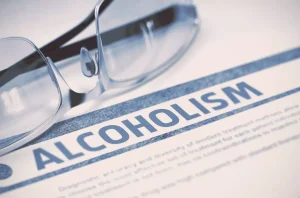
(e.g., liver disease, drunk driving arrests, repeated detoxifications). For others, the denial is fixed and is unaffected by confrontation with the evidence. In conclusion, denial of a general alcohol problem by individuals who admitted to multiple AUD criteria items was quite common in the SDPS, despite prodigious maximum drinking quantities. This pattern of denial indicates that greater efforts need to be made to educate our patients and our colleagues regarding what an AUD is and how serious the prognosis can be. For AUD probands, deniers were less likely to endorse several specific criteria that might offer some insights into why they do not consider themselves problem drinkers. First, we report detailed information gathered prospectively every five years from 453 families by the same principal investigators using the same interviews and questionnaires across two generations.

What if your loved one refuses?
- They might say things like, “I only drink to relieve stress” or “Everyone drinks; it’s a normal way to unwind.”
- Now they constitute “back to normal.” We think we no longer have a problem, when actually we’ve just changed the standard by which we deem something concerning.
- So what can we do about our “Ignore more, care less, everything is fine!
- Only by acknowledging there’s an issue can someone begin taking steps toward recovery.
- Don’t worry; we’ll also provide practical strategies for overcoming such denials—supportive steps you can take as someone wrestling with your own struggles or trying to assist a loved one seeking redemption.
- After years of denials, Sherri admitted to the hoax and pleaded guilty to one felony charge each of lying to law enforcement and mail fraud in April 2022.
- When a loved one is engaged in alcohol abuse, watching them spiral out of control can cause inner conflict for friends and family members.
Addiction denial is usually considered in psychodynamic terms, as an unconscious ego defense mechanism. It is held that to fully acknowledge addiction-related problems would be so threatening to the individual’s ego that he or she must misconstrue, reinterpret, or even forget the facts of the case. The central feature of this interpretation is that the denial is https://ecosoberhouse.com/article/what-spiritual-malady-means/ based on emotional rejection of the truth, rather than a simple failure of insight. But they may put themselves or others in danger by drinking and driving, having risky sexual encounters, or blacking out, Benton says. Unfortunately, alcoholics too often turn the realistic need to enter rehab into a battle between themselves and anyone who is urging treatment.
Signs your loved one is in denial
If denial is causing problems or preventing you from dealing with a physical or mental health condition, consider talking to a professional or joining a support group. It’s essential to convey a message of hope to your loved one struggling with alcoholism denial. Let them know that there are ways they can overcome their addiction and live a fulfilling life once again.
Chemical dependence
Those who adopt out of the child welfare system have little to no knowledge of what their children were exposed to before birth. Testing can be tough to get, behaviors are hard to tease out and despite its prevalence — a higher percentage of children have FASD than autism or Down syndrome — a lack of awareness has left families of FASD kids feeling invisible and desperate. While narcissism is why are alcoholics in denial a personality disorder and alcoholism is an addiction, narcissists and alcoholics share several characteristics. Recognizing these commonalities can help you understand and cope with people who have Narcissistic Personality Disorder, untreated alcoholism, or both. I have even witnessed many alcoholics steadfastly defending their “right” to live as they please, including to drink as they wish.

Treatment Is Critical to Recovery
- Because the findings are based on study of participants in an inpatient addiction treatment program who had been referred for neuropsychological testing, the findings may not generalize to less severely afflicted alcoholics.
- Many people with alcohol addiction grapple with guilt and anger, which can lead to blame.
- We welcome anyone who wishes to join in by asking for support, sharing our experiences and stories, or just encouraging someone who is trying to quit.
- However, the proportions of probands who reported tolerance in the five years prior to interview decreased steadily with each subsequent interview.
- That is, individuals with substance disorders use denial in order to prevent threatening emotions entering our conscious thought.
- This deflection helps them maintain control over how others perceive their drinking while avoiding facing the reality that they may have an unhealthy relationship with alcohol.
- It’s like putting on a pair of rose-colored glasses and refusing to see the negative consequences that arise from excessive alcohol consumption.
- But if Biden clears that very low hurdle, the stakes suddenly become higher for Trump.
- For an addict, it can be terrifying to acknowledge the harm one has done by one’s addiction to oneself and potentially to others one cares for.
- For others, the denial is fixed and is unaffected by confrontation with the evidence.
- While narcissism is a personality disorder and alcoholism is an addiction, narcissists and alcoholics share several characteristics.
